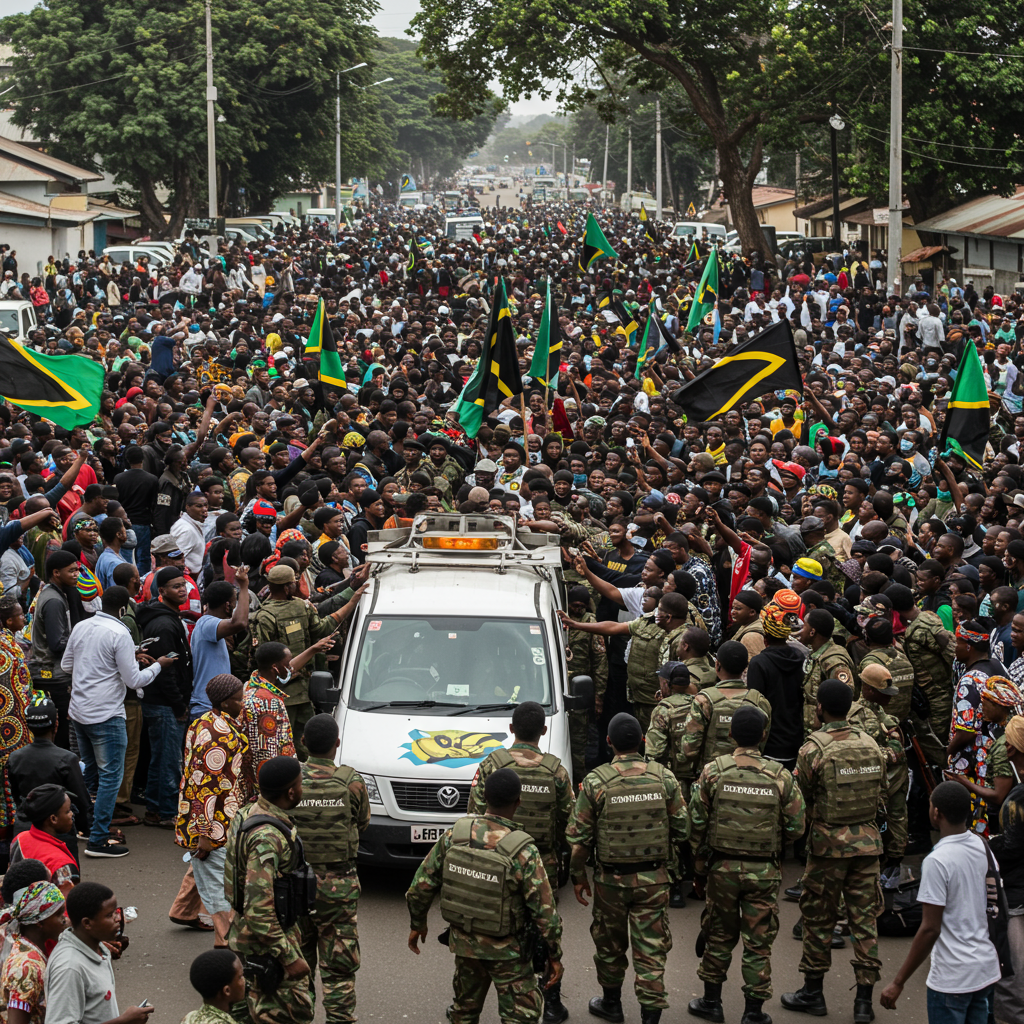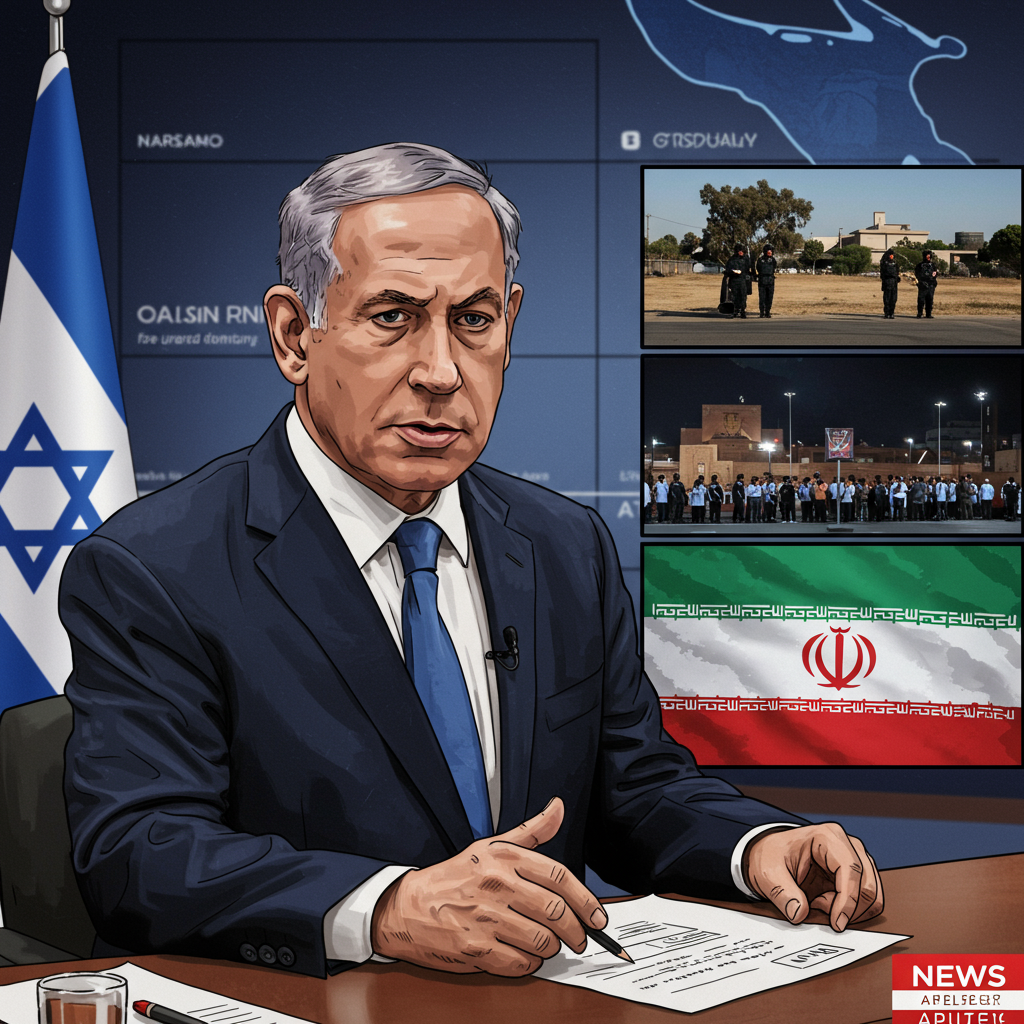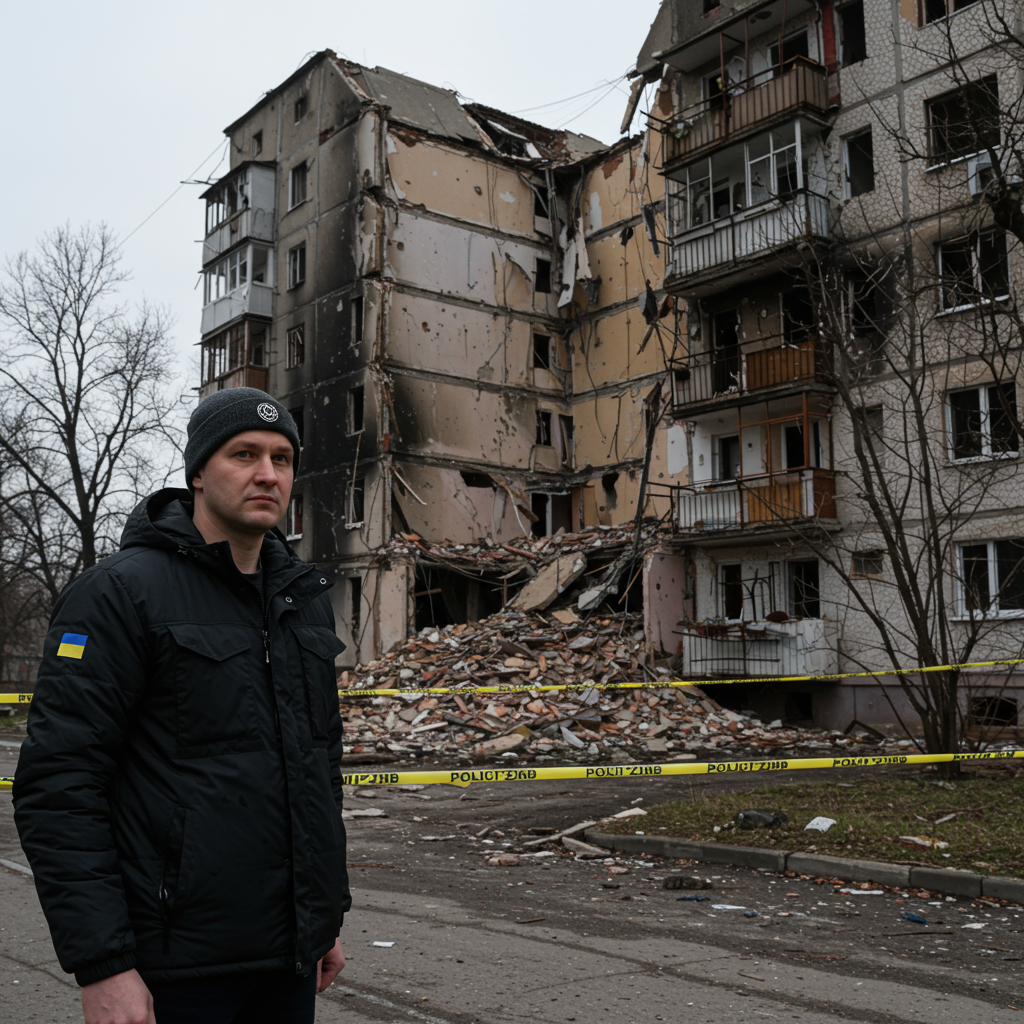Tanzania is grappling with a profound post-election crisis as widespread protests escalate across the nation, fueled by disputed election results and allegations of severe government repression. Conflicting reports have emerged regarding casualties, with the main opposition party claiming hundreds dead, while the government denies excessive force and the United Nations expresses alarm over credible reports of fatalities. This developing situation highlights deep-seated tensions and concerns over human rights and democratic integrity in the East African country.
Escalating Violence: Conflicting Casualty Reports Emerge
The aftermath of Tanzania’s recent general election has been marred by a fierce dispute over casualty figures stemming from widespread protests. Opposition parties and international bodies present starkly different accounts from the government’s narrative.
Opposition Claims: Hundreds Killed in Unrest
Tanzania’s primary opposition party, Chadema, has reported a staggering death toll, alleging that approximately 700 people have been killed in clashes since the disputed October 29 elections. Chadema spokesperson John Kitoka informed AFP that party members, through visits to hospitals and health clinics, tallied around 350 deaths in Dar-es-Salaam and over 200 in Mwanza, with additional fatalities nationwide. This grim estimate was partially corroborated by an anonymous security source and a diplomat in Dar-es-Salaam, who separately told AFP that deaths were “in the hundreds,” with some estimates ranging from 500 to 800 nationwide. Concerns remain that the actual figure could be even higher, particularly due to potential killings during nightly curfews. However, Al Jazeera reported being unable to independently verify these high numbers, a challenge exacerbated by government-imposed information blackouts.
Government Rejection: No Excessive Force Used
In sharp contrast, Tanzania’s Foreign Minister Mahmoud Thabit Kombo has categorically denied allegations of excessive force. Speaking to Al Jazeera, Kombo stated the government possesses “no official figures” on any protester deaths and dismissed the opposition’s claims as unfounded. He asserted that “no excessive force” has been used, acknowledging only “pockets of violence” and “vandalism” targeting government properties, including offices, vehicles, and national electricity supply utilities. This official stance stands in stark opposition to the figures presented by the opposition and concerns raised internationally.
International Alarm: UN Reports and Calls for Investigation
Amidst the conflicting local accounts, the United Nations has voiced serious concerns. UN human rights spokesperson Seif Magango stated that the organization has “credible reports” of at least 10 deaths at the hands of security forces. These fatalities reportedly occurred in Dar-es-Salaam, Shinyanga, and Morogoro, where security forces allegedly used live ammunition and teargas to disperse demonstrators. The UN urged security forces to “refrain from using unnecessary or disproportionate force”, including lethal weapons, and called for efforts to de-escalate tensions. UN Secretary-General Antonio Guterres further demanded an investigation into allegations of excessive force and expressed deep concern over reports of enforced disappearances and detentions leading up to the elections.
Roots of the Unrest: Disputed Elections and Pre-Existing Repression
The widespread protests did not erupt in a vacuum; they are a direct consequence of elections widely perceived as unfair and a longer history of political repression. The current crisis serves as a critical litmus test for President Samia Suluhu Hassan’s leadership.
Electoral Irregularities: Barred Candidates Fuel Anger
The primary trigger for the demonstrations was the exclusion of President Samia Suluhu Hassan’s two biggest challengers from the presidential race. The Independent National Electoral Commission (INEC) disqualified Chadema, the main opposition party, in April for refusing to sign an electoral code of conduct. Chadema leader Tundu Lissu was subsequently arrested at a rally where he called for electoral reforms and faced treason charges, which he denies. Similarly, Luhaga Mpina, the candidate for the second-largest opposition party, ACT-Wazalendo, was also barred, reportedly on “legal technicalities.” This left President Hassan to contest against only minor opposition figures, creating a “one-horse race” that infuriated citizens and rights groups, who widely view the elections as designed to solidify the ruling Chama Cha Mapinduzi (CCM) party’s enduring power since 1961.
Pre-Election Crackdown and Human Rights Concerns
International watchdogs had sounded alarms for months regarding Tanzania’s deteriorating human rights situation. A panel of nine UN experts in June labeled government actions “unacceptable”, documenting over 200 disappearances since 2019. In September, Human Rights Watch (HRW) detailed at least 10 recent instances of politically motivated assault, harassment, abduction, and torture, alongside “extensive restrictions” on media and civil society organizations. HRW warned that the elections were at “great risk,” and the UN noted an “escalating” pattern of attacks, disappearances, and torture against critics under President Hassan’s administration. These historical issues provide crucial context to the current anger, as critics argue the government is systematically undermining democracy and targeting opponents.
Government Response: A Heavy Hand and Information Blackout
In an attempt to quell the escalating unrest, the Tanzanian government has deployed significant measures, including a heavy security presence and severe restrictions on communication.
Military Deployment and Curfews
Demonstrations, which began predominantly in Dar-es-Salaam, spread quickly across the country, with protesters setting vehicles, petrol stations, and police stations ablaze. In response, the government deployed the military onto the streets and imposed a night-time curfew, particularly in areas like Mbagala, Gongo la Mboto, and Kiluvya, where protesters defying the curfew were met with tear gas and gunfire. Army chief Gen Jacob John Mkunda condemned the protesters, labeling them “criminals” and asserting that the military would work with other security agencies to “contain the situation.” The government also postponed the reopening of colleges and universities, which had been set for the following Monday, further indicating the severity of the unrest.
Nationwide Internet Shutdown and Its Impact
A crucial aspect of the government’s response has been a nationwide internet shutdown, confirmed by global monitor NetBlocks. This blackout has severely hampered information flow, making independent verification of events and casualty figures extremely difficult for journalists and human rights groups. Beyond communication, the shutdown caused widespread disruption, affecting daily life and travel. A Kenyan music publicist reported being stranded for three days due to the “total disconnect,” unable to access international calls, text messages, or ride-sharing apps, effectively grounding Tanzania’s national airline. The government defended the internet blackout as necessary to prevent vandalism and save lives.
Tensions in Zanzibar and Broader Regional Context
The mainland protests are mirrored by significant tensions in the semi-autonomous archipelago of Zanzibar, and the wider trend reflects a challenging political landscape across Africa.
Zanzibar’s Disputed Results
In Zanzibar, the ruling Chama Cha Mapinduzi (CCM) party also retained the presidential seat. However, the opposition there vehemently alleged “massive fraud” in the results, which saw incumbent President Hussein Mwinyi win 78.8 percent of the vote. While Zanzibar remained calm on Friday, a heavy military presence underscored the underlying tensions. The opposition announced plans to reveal its next steps, signaling continued challenges to the election’s legitimacy.
A Troubling Regional Trend
The events in Tanzania are not isolated. They reflect a troubling regional trend where incumbent leaders in African nations seek to extend their time in power through contested elections. Similar situations have stirred deep-seated anger among citizens in countries like Ivory Coast and Cameroon this month, highlighting broader challenges to democratic processes and human rights on the continent. The situation in Tanzania thus becomes a crucial case study in the ongoing struggle for electoral integrity and political freedom in Africa.
Frequently Asked Questions
What are the main conflicting reports regarding casualties in the Tanzania post-election protests?
The main opposition party, Chadema, alleges that approximately 700 people have been killed in the protests, citing figures gathered from hospitals in Dar-es-Salaam (around 350) and Mwanza (over 200). This claim is partially supported by unnamed security sources and diplomats. In stark contrast, Tanzania’s Foreign Minister Mahmoud Thabit Kombo denies any “excessive force” has been used and states the government has “no official figures” on protester deaths. The United Nations, however, reports “credible reports” of at least 10 deaths at the hands of security forces and has called for an investigation into these allegations.
What has been the Tanzanian government’s official response to the protests and allegations of violence?
The Tanzanian government has maintained that no “excessive force” has been used against protesters and denies the high casualty figures reported by the opposition. Foreign Minister Kombo acknowledged “pockets of violence” and “vandalism” against government properties. In response to the unrest, the government deployed the military, imposed a night-time curfew, and enforced a nationwide internet shutdown. Army chief Gen Jacob John Mkunda condemned protesters as “criminals” and stated the military would work to contain the situation, while also postponing the reopening of colleges and universities.
What actions has the international community called for regarding the situation in Tanzania?
The international community, primarily through the United Nations, has called for immediate action and investigation. UN human rights spokesperson Seif Magango urged Tanzanian security forces to “refrain from using unnecessary or disproportionate force,” including lethal weapons, against protesters and to de-escalate tensions. UN Secretary-General Antonio Guterres has specifically called for an investigation into allegations of excessive force and expressed deep concern over reports of enforced disappearances and detentions prior to the elections. Ambassadors from several foreign embassies have also engaged the Tanzanian government, urging restraint in policing the protests.
Conclusion
The post-election landscape in Tanzania is fraught with tension, marked by severe violence, conflicting reports, and a profound struggle for democratic accountability. With opposition claims of hundreds dead, the government’s steadfast denials, and international calls for investigation, the situation remains volatile and opaque, largely due to a widespread internet shutdown. The events underscore not only the immediate challenge to President Samia Suluhu Hassan’s administration but also highlight broader concerns about political freedoms and electoral integrity in Tanzania and across the African continent. As the world watches, the demand for transparency, independent verification, and respect for human rights remains paramount for navigating this unfolding crisis.




